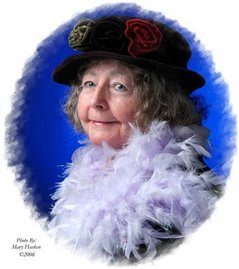
HONORING WOMEN WHO HAVE MADE A DIFFERENCE.
If I had my druthers, I would be most happy to say that all women in the United States had the right to vote for 100 years. On Monday, February 1, the women of Washington State will be celebrating their 100 years of the right to vote. The move for equal voting laws began in 1854 when a member of the Washington Territorial Legislature introduced an amendment for this and it failed to pass by one vote even though another bill passed in the same year, which gave all male white citizens above the age of 21 the right to vote. Even though this was voted down, it rallied the women and they filled the large cities and the small towns. They were angry and argued that the U.S. Constitution's 14th Amendment used the word 'citizen' meaning 'all persons born or naturalized in the United States did not mean only white males over 21 years of age.
When the Territorial Legislature passed the law giving the right to vote to 'all white citizens above the age of 21" some of the suffragists tested their voting rights based on the U.S. 14th Amendment in 1869 at White River. Their votes were rejected although fifteen women in Thurston County successfully voted in 1870.
The women of Washington State began organizing parties, marches, and demonstrations. Actually Washington was a territory because it was not admitted into the Union until November 11, 1889. One forceful woman was Emma Smith DeVoe who after moving to Tacoma organized speeches, rallies and demonstration forcing the issues into the open. In 1883, both houses of the legislature signed into law a bill giving women voting rights and the governor signed it. However, in 1887 the Washington Territorial Supreme Count revoked suffrage because of a suit brought by a gambler who had been indicted by a grand jury that included women. This did not stop the women.
In February 1910, the legislators allowed a vote to amend the State Constitution giving women the right to vote. It passed and the suffragists had distributed one million pieces of literature. Washington State joined the states Wyoming, Utah, Idaho and Colorado who had already enacted the women's right to vote. The right to vote did not become nationwide until the 21st Amendment initiated by suffragist Alice Paul was ratified by the necessary number of states.
Even though women have the right to vote today, there are still many hurdles to overcome and one is the Equal Rights Amendment, which needs only three more states to ratify it. This amendment gives all women equal rights. It is pitiful that women have to gain equality law by law and also an amendment. When is this going to stop? If it is to be, it is up to each woman individually to bombard their national representatives to garner the votes from the states who have not ratified the E.R.A.
Frances Perkins
One notable woman who is rarely recognized or honored for her achievements is Frances Perkins. Some will say Frances who? Frances was born in 1880 in Boston. She attended college in New York State and developed a passion to help the underprivileged. In 1911 she was working for the Factory Investigation Commission in New York City when the Shirtwaist Factory Fire occurred. From her biography by Naomi Pasachoff, the writer tells of Perkins being horrified that 146 immigrant women had jumped to their deaths. Perkins lobbied until she had a law passed in the city for all buildings to have fire escapes.
Perkins became active in politics and what I have gleaned from her biography is that she was persistent without seemingly being abrasive in her approaches. As she worked her way up the political ladder, she always made friends with the wife of the politicians. She worked for Franklin Delano Roosevelt and became a friend of his wife Eleanor. This seems to be a trait Perkins had or a ploy to become friends with the wives and then there would be no jealousy of her while working with their husbands - smart woman. With the election of F.D.R. as President, Perkins became his Secretary of Labor and the first woman cabinet member. She was also at that time as the first selected cabinet member to be in line for the presidency if he should pass.
As the Secretary of Labor from 1933-1945, Perkins initiated and with F.D.R. backing her, the Social Security Act, Civilian Conservation Corps, Unemployment Insurance, Public Works Agency and its successor the Federal Works Agency and the Fair Standards Act. Therefore, I salute Frances Perkins for love and caring for the poor and wanting to make life better for them.
Her biography is The Woman Behind the New Deal: Frances Perkins by Naomi Pasachoff.









No comments:
Post a Comment